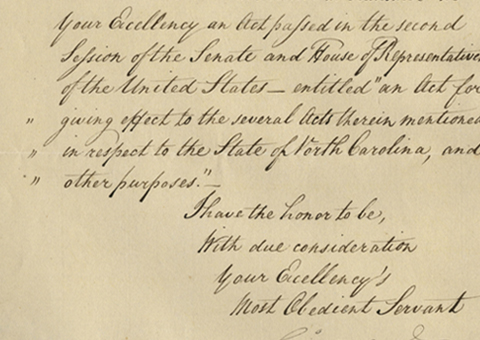Sold – David Ben Gurion Claims that the British Prevented a Peace Settlement

In a letter to Golda Meir the same day he suspended the Israel-Egypt armistice in preparation for the Suez War, he blames the British for their Suez dilemma.
In 1945, at British prompting, Egypt, Iraq, Lebanon, Saudi Arabia, Syria, Transjordan, and Yemen formed the Arab League to coordinate policy between the Arab states. A prime reason for the British pressure was to prevent inter-Arab conflict that might endanger its control of the Suez Canal in Egypt, the main highway to...
In 1945, at British prompting, Egypt, Iraq, Lebanon, Saudi Arabia, Syria, Transjordan, and Yemen formed the Arab League to coordinate policy between the Arab states. A prime reason for the British pressure was to prevent inter-Arab conflict that might endanger its control of the Suez Canal in Egypt, the main highway to the British crown’s greatest gem, India. Egyptian King Farouk and his ally Saudi Arabia feared that Transjordan sought expansion and would annex part or all of Palestine, using it as a basis to attack or undermine Syria and Lebanon. Jordan’s King Abdullah was in fact eyeing just that possibility and had been engaged in secret talks aimed at making a deal with the Jews in order to annex parts of Palestine to his own kingdom. On May 14, 1948, after the last British troops left their former Palestine mandate, the State of Israel was proclaimed. The next day Arab forces from Egypt, Transjordan, Iraq, Syria, and Lebanon initiated a war against the new Jewish nation. Transjordan took a comparatively limited part. Late in 1948 an armistice was reached and the Israeli War of Independence came to an end. However, peace was not achieved and more wars followed.
On July 23, 1952, a military coup occurred in Egypt and King Farouk was overthrown by officers who included Gamal Abdel Nasser. Nasser was a nationalist dedicated to ridding his country of foreigners like the British and liberating Palestine from the Jews, and he assumed the presidency of Egypt in late 1954.
Throughout 1956, tensions increased between Israel and Egypt, with Egyptian fedayeen launching frequent incursions into Israeli territory and Israel launching retaliatory raids into Egyptian territory. At the same time, Cold War politics caused the U.S. and Britain to withdraw from financing the Aswan Dam, which Egyptian President Nasser saw as crucial. On July 26, 1956, to secure funds for the dam, Nasser announced the nationalization of the Suez Canal, a vital trade route to the east in which British banks and business held a 44% stake. Two days later, British Prime Minister Anthony Eden ordered development of a plan to regain the Canal. The dilemma facing Britain and its ally France on taking military action was to find sufficient justification for invading a sovereign state. It was decided to encourage Israel to attack the Egyptians in Sinai – which would suit the former – with a drive to the Canal. This would give the Anglo-French force adequate reason to send troops to intervene to maintain the integrity of the Canal. England and France secretly prepared military actions to regain control of the Canal. Israel, through its Chief of Staff General Moshe Dayan, first heard of the invasion plan on September 1, 1956, when the French suggested that Israel join in. Dayan promptly informed Israeli Prime Minister David Ben-Gurion.
On September 3, 1956, at a meeting with United Nations officials, David Ben-Gurion stated that the relevant articles of the
General Armistice Agreement with Egypt were "in suspension" owing to Egypt’s noncompliance with the Security Council resolution of September 1, 1951, forbidding interference with the passage through the Suez Canal of shipping bound for Israel. That
same day he took time to gloat to his Foreign Minister, Golda Meir (who would later serve as Prime Minister in the Yom Kippur War of 1973), about the predicament the British had made for themselves with their indecisive Middle East policy. He also made the startling claim, all the more compelling because it was not for public consumption, that the British Government had not merely encouraged Arab unity, but had stood in the way of an Israeli-Jordanian accord in 1948 in order to placate the Egyptians.
Typed Letter Signed on Prime Minister’s letterhead, in Hebrew, Jerusalem, September 3, 1956, to Foreign Minister Golda Meir. “Further to our conversation, I am curious whether even now, after the Suez Canal has been nationalized out of British hands, their Prime Minister Anthony Eden still thinks it was wise of Britain to prevent the possibility of a political accord between us and the Jordanians in 1948, which was caused by a narrow minded view that this might harm their friendly relations with King Farouk’s Egypt. It’s interesting to know where that selfsame Farouk is today, and where has that Egyptian-Britain ‘friendship’ disappeared to?”
So Ben Gurion, knowing that Britain was planning extreme measures to recoup its lost position in Egypt, sharply criticizes past British foreign policy by calling it erroneous, futile, and counterproductive. He also reveals the historically-significant belief of the senior Israeli leadership, not articulated publicly to avoid antagonizing the still-powerful Britain, that the British had obstructed a peace settlement between Israel and Jordan, one that might well have had a stabilizing influence on the region.

Frame, Display, Preserve
Each frame is custom constructed, using only proper museum archival materials. This includes:The finest frames, tailored to match the document you have chosen. These can period style, antiqued, gilded, wood, etc. Fabric mats, including silk and satin, as well as museum mat board with hand painted bevels. Attachment of the document to the matting to ensure its protection. This "hinging" is done according to archival standards. Protective "glass," or Tru Vue Optium Acrylic glazing, which is shatter resistant, 99% UV protective, and anti-reflective. You benefit from our decades of experience in designing and creating beautiful, compelling, and protective framed historical documents.
Learn more about our Framing Services






































































































